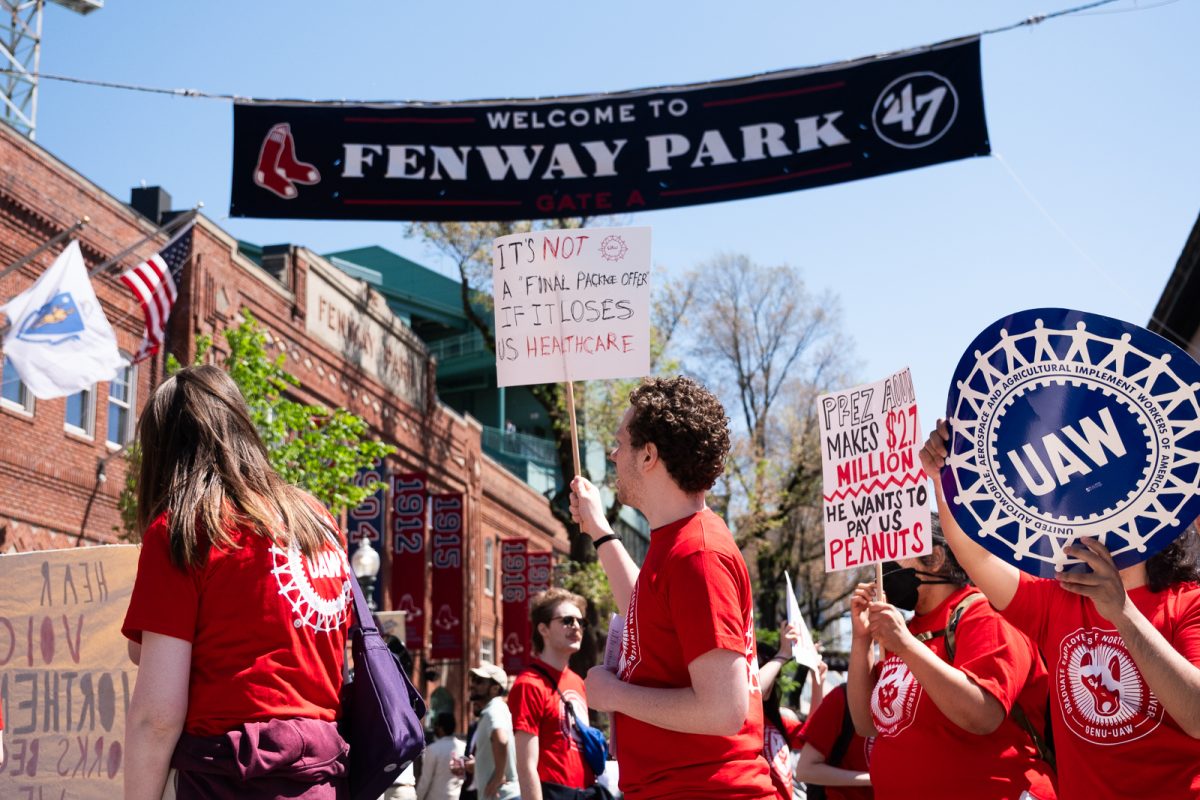By Kenny Sokan, News Correspondent
After months of protest and the collapse of the Ukraine government, the Northeastern Office of International Study Programs (OISP) has taken precautionary measures for the Russia/Ukraine summer II Dialogue of Civilizations by removing the Ukraine portion of the program.
The OISP reached this decision after the US Department of State issued a travel warning for the Russian Federation due to the events in Ukraine, which warned of “potential increased public demonstrations and anti-American actions in Russia in connection with Russian actions in the Crimea.”
“There is a travel alert to Russia which the university is monitoring closely and working with the faculty member leading the trip on contingency plans just in case,” Northeastern spokeswoman Renata Nyul said in an email to The News.
The Ukraine portion of the Dialogue itinerary consisted of traveling to Kiev and staying in hostel in the downtown area, only five minutes away from the main square where many of the clashes and protest have taken place. Kiev is being replaced with Kazan, the capital of the Tatar Republic, a federal subject of Russia.
E-mails detailing the change in itinerary were sent out on Feb. 24 to participating students.
“I wish we could go to Ukraine, but it’s better not to,” dialogue faculty leader Katya Burvikova said. “It was a big part of the dialogue … but it’s fine because the major portion of the trip is still in Russia.”
According to Burvikova, the modification to the Dialogue impacted students and they, too, were disappointed.
“While it is quite unfortunate that we will not be able to experience all that Kiev has to offer, I agree with their decision since the situation is far from resolved,” Samuel Kaplan, a sophomore biochemistry major who will be participating in the Dialogue, said. “As soon as things started going up in flames, it was self-evident that it would not be a safe country to travel to within the foreseeable future from the school’s point of view.”
Since the start of the Russia-Ukraine crisis, Kaplan has kept in touch with his parents on the matter.
“My parents are originally from Russia, so it’s something we were talking about as soon as things started happening,” Kaplan said. “My parents were not happy that the Ukraine part was being canceled, but they understood that it was necessary due to the unstable situation.”
Crimea has become a battleground for political and economic power between the European Union and Russia. Russian President Vladimir Putin’s wants Ukraine in his pursuit to integrate and regain influence over ex-Soviet states. The EU wants Ukraine for a program intended to institute democratic change in the region in return for free-trade agreements.
On Monday, a pro-Russian referendum passed by a landslide with some 97 percent of Crimean voters opting to leave the Ukraine. The referendum offered no option for voters who wanted the constitution to remain unchanged.
On Tuesday, Putin claimed Crimea as a part of Russia and in an address to the Federal Council asked to ratify the annexation of Crimea and Sevastopol to Russia. After his speech, Putin signed a treaty with Crimean leaders to induct the region into Russia. The treaty still needs parliamentary approval, but that is only regarded as a formality.
According to Burvikova, the OISP is carefully monitoring the crisis. If the Russian Federation is deemed unsafe for travel, the OISP is considering Estonia, Lithuania, and Latvia, post-Soviet territories located on the Baltic Sea, as substitute destinations.








